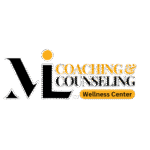In the hustle and bustle of our daily life, it’s easy to overlook the powerhouse within ourselves our self-esteem. Yet, understanding and nurturing this vital aspect of our psyche can unlock a world of possibilities and boost our confidence to new heights.

Defining Self-Esteem: The Backbone of Confidence
Self-esteem isn’t just a buzzword; it’s the foundation upon which our confidence is built. It’s how we perceive ourselves, our worth, and our abilities. Simply put, it’s the lens through which we view the world and our place in it. But why is it so crucial in our daily lives?
Importance of Self-Esteem in Daily Life
Imagine waking up every morning with a deep sense of self-worth and purpose. That’s the power of a healthy self-esteem. From making bold career moves to nurturing fulfilling relationships, self-esteem impacts every facet of our lives. It influences how we handle challenges, how we interact with others, and ultimately, how we perceive success.
The Impact of Self-Esteem on Confidence
Imagine this: You’re going to enter a crucial meeting. Though your pulse is pounding and your palms are sweaty, you know in your heart that you can succeed. That’s the power of confidence, and the key component is self-worth. When we have faith in our skills and abilities, we project confidence in all we accomplish. It’s the distinction between cowering in the face of misfortune and grabbing hold of opportunities with abandon.
Defining Self-Esteem: The Backbone of Confidence
Self-esteem is more than just a fleeting feeling of positivity; it’s the bedrock of our confidence and self-worth. It’s the deep-rooted belief in our abilities, worthiness, and value as individuals. When our self-esteem is strong, we approach life with resilience, optimism, and a sense of empowerment.
Factors Influencing Self-Esteem
Our self-esteem isn’t static; it’s shaped by a myriad of factors that evolve. From our upbringing and early experiences to the relationships we cultivate and the challenges we face, every interaction leaves its mark on our self-esteem. Positive experiences, supportive relationships, and a healthy sense of accomplishment can bolster our self-esteem, while negative experiences, criticism, and self-doubt can chip away at it.
Signs of Healthy vs. Low Self-Esteem
Recognizing the signs of healthy and low self-esteem is crucial for understanding where we stand and how we can improve. Healthy self-esteem manifests as confidence, resilience, and a positive outlook on life. On the other hand, low self-esteem often manifests as self-doubt, fear of failure, perfectionism, and a tendency to seek validation from others.
By understanding these key aspects of self-esteem, we can begin to take proactive steps toward boosting our confidence and reclaiming our sense of self-worth. In the next installment, we’ll explore practical strategies and techniques for cultivating healthy self-esteem that serves as the foundation for unshakeable confidence.
Defining Confidence: Unleashing Your Inner Strength
Confidence is the unwavering belief in our abilities, worth, and potential to succeed. It’s the inner voice that whispers, “You’ve got this,” even in the face of challenges. When we exude confidence, we radiate positivity, assertiveness, and self-assurance, making us unstoppable in pursuit of our goals.
The Relationship Between Self-Esteem and Confidence
Self-esteem and confidence are inseparable companions on our journey to self-discovery and empowerment. A strong sense of self-esteem lays the groundwork for confidence, providing the foundation upon which we build our belief in ourselves. Conversely, nurturing confidence can reinforce our self-esteem, creating a positive feedback loop of self-assurance and self-worth.
Benefits of Confidence in Various Aspects of Life
Confidence isn’t just a desirable trait; it’s a game-changer in every facet of our lives. In personal relationships, confidence breeds trust, authenticity, and emotional resilience, fostering deeper connections and meaningful bonds. In our careers, confidence propels us to take risks, seize opportunities, and showcase our skills and expertise with conviction. In terms of mental health, confidence serves as a shield against self-doubt, anxiety, and negative self-talk, empowering us to navigate life’s challenges with grace and resilience.
Embrace Your Potential: Building Confidence Through Courageous Actions
Accepting Difficulties as Growth Possibilities
Obstacles are stepping stones toward achievement, not barriers. Embrace challenges as chances for personal development and advancement rather than running away from them. No matter how minor the obstacle, every victory boosts your self-esteem and solidifies your self-belief.
How to Become More Confident by Taking Risks: A Step-by-Step Guide
Commence Small: Take on little obstacles that force you to step outside of your comfort zone to start. Each time you take a step outside of your comfort zone, whether it’s taking up a new pastime or talking to a stranger, your confidence grows.
Visualize Success: Envision yourself conquering obstacles and realizing your objectives. You’ll have the self-assurance and drive to realize your dreams if you visualize achievement.
Celebrate Your Wins: No matter how minor, be sure to recognize and honor your accomplishments. Every accomplishment, no matter how small, increases your self-assurance and solidifies your self-belief.
Learn from Failure: Making mistakes is a necessary part of the learning process; it’s not the end. Consider errors as chances to learn and grow rather than as places to wallow in regret. Every failure presents an opportunity to fortify your confidence and develop resilience.
You’ll experience a voyage of empowerment and self-discovery unlike anything you’ve ever experienced by venturing outside of your comfort zone and accepting obstacles as chances for personal development.
Developing Confidence via Audacious Behavior and Assertiveness
It takes courage to move outside of your comfort zone and take on problems head-on to realize your full potential and increase your confidence. This section will discuss how assertiveness training, goal-setting, and addressing your anxieties may help you become a shining example of self-assurance and confidence.
A. Embracing the Unknown and Taking Risks Despite Fears
The real beginning of growth is stepping outside of your comfort zone. It all comes down to mustering the bravery to face your anxieties and grasp chances for personal development. Every act of bravery broadens your horizons and boosts your confidence, whether it’s taking a chance on a new professional path, speaking up in a meeting, or striking up a tough conversation.
B. Practicing Assertiveness: Own Your Voice
Assertiveness is the key to communicating your needs and boundaries effectively while maintaining respect for yourself and others. It’s about expressing your thoughts, feelings, and desires with clarity and confidence, without resorting to aggression or passive-aggression. By mastering assertive communication, you’ll cultivate stronger relationships, build self-respect, and command the respect of others.
C. Celebrating Achievements: Fuel Your Confidence with Success
Developing your confidence requires that you recognize and celebrate your accomplishments, no matter how minor. Record all of your achievements, both large and small, in a notebook and spend some time thinking back on your progress. Celebrating your successes gives you more self-assurance and strengthens your belief in your skills.
Helpful Advice for Increasing Self-Assurance via Boldness
Realize your intrinsic worth and value, and show people that you are confident in your abilities by exhibiting this knowledge in your relationships.
Establish Limits: Don’t apologize or feel bad about putting your needs first; instead, set firm limits and communicate them with assertiveness.
Instead of blaming or accusing, use “I” phrases to express yourself and take responsibility for your emotions and experiences.
Learn to Listen Actively: Pay close attention to what other people are saying and give intelligent, respectful answers that also make your points known.
You will start on a revolutionary path towards unwavering confidence and self-assurance by facing your concerns head-on, acknowledging your successes, and developing the art of assertiveness.
Overcoming Setbacks and Boosting Self-Esteem
Techniques for Handling Failures and Setbacks:
Although failures and setbacks are inevitable in life, they don’t have to define us. The following techniques will assist you in getting through difficult circumstances and coming out stronger on the other side:
Acknowledge Your Feelings: When faced with setbacks, it’s acceptable to experience disappointment, frustration, or even defeat. Accept your feelings and allow yourself to go through them completely.
Exercise Self-Compassion: Treat yourself with kindness when things are tough. Show yourself the same empathy and understanding that you would give a friend going through a similar situation.
Learning from Mistakes and Moving Forward:
Mistakes are valuable learning experiences that can fuel personal growth and development. Here’s how you can leverage setbacks as opportunities for learning and growth:
Reflect on the Experience: Take time to reflect on the setback and identify any lessons or insights that can be gained from the experience. What went wrong? What could have been done differently? Use this reflection as a springboard for growth.
Embrace a Growth Mindset: Adopt a growth mindset, which views setbacks as temporary setbacks rather than permanent failures. Believe in your ability to learn, grow, and improve, regardless of the challenges you face.
Set New Goals: Use setbacks as an opportunity to reassess your goals and priorities. Set new, more realistic goals that align with your values and aspirations, and take deliberate steps towards achieving them.
Stay Persistent: Remember that setbacks are not the end of the road but rather detours on the journey towards success. Stay persistent, resilient, and determined to overcome obstacles and achieve your dreams.
Unleashing Your Confidence: Embrace the Journey to Self-Esteem and Personal Growth
Improving confidence and self-esteem is a path that is definitely worthwhile even though it is not always simple. Through the application of the techniques discussed in this blog, such as confronting anxieties, acknowledging successes, and drawing lessons from failures, you can begin a journey towards increased confidence and self-determination.
So, this is the day to start living up to your full confidence. Accept the difficulties, acknowledge your accomplishments, and never undervalue the importance of self-belief. You may reach your greatest potential and lead a confident, happy, and fulfilled life with commitment and perseverance.
Remind yourself as you proceed on your path of self-improvement and personal development that obstacles are merely chances for growth and learning. Remain loyal to who you are, stay dedicated to your objectives, and have faith in your capacity to go past any challenges you face.
Building confidence is a gradual process that involves understanding yourself, practicing self-care, challenging negative thoughts, and seeking support. By surrounding yourself with positivity, setting realistic goals, and embracing failures as learning opportunities, you can boost your self-esteem and navigate life with confidence. Remember to celebrate your successes, reflect on your progress, and continue on your journey of building confidence.

